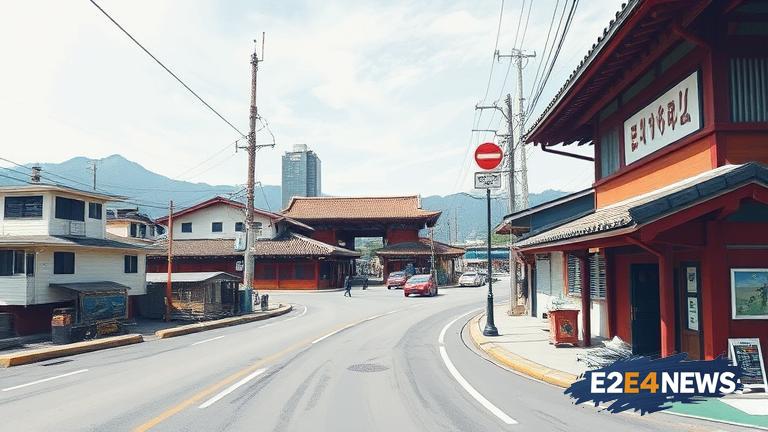South Korea’s economy has been experiencing a slowdown in recent years, with the country’s growth rate declining from 3.1% in 2017 to 2.2% in 2022. This decline is attributed to a combination of factors, including a decrease in exports, a rise in household debt, and a rapidly aging population. The country’s export-driven economy has been hit hard by the US-China trade war, with exports declining by 10.3% in 2022 compared to the previous year. Furthermore, the country’s household debt has risen to 1,845 trillion won, which is approximately 104% of the country’s GDP. The aging population is also a significant concern, with the proportion of people aged 65 and older expected to increase from 14.3% in 2020 to 46.5% by 2060. To address these challenges, the South Korean government has been urged to implement structural reforms, including increasing the retirement age, improving the social safety net, and promoting innovation and entrepreneurship. The government has also been encouraged to invest in education and training programs to enhance the skills of the workforce and improve productivity. Additionally, there have been calls for the government to reduce its reliance on exports and promote domestic consumption. The country’s conglomerates, known as chaebols, have also been criticized for their dominance of the economy and their role in perpetuating inequality. To address this issue, the government has introduced policies aimed at promoting fair trade and reducing the power of the chaebols. Despite these challenges, South Korea remains one of the most technologically advanced countries in the world, with a highly skilled workforce and a strong innovation ecosystem. The country is home to some of the world’s leading technology companies, including Samsung and LG, and has been at the forefront of the development of emerging technologies such as 5G and artificial intelligence. However, the country’s economy is not without its risks, including a high level of debt and a rapidly aging population. To mitigate these risks, the government has been urged to implement policies aimed at promoting fiscal sustainability and reducing the country’s reliance on debt. The country’s economic woes have also had a significant impact on the political landscape, with the current government facing criticism for its handling of the economy. The opposition party has been calling for the government to take more decisive action to address the economic challenges facing the country. In response, the government has announced a series of policies aimed at promoting economic growth and reducing inequality. These policies include increasing the minimum wage, improving the social safety net, and promoting innovation and entrepreneurship. Despite these efforts, the country’s economic challenges are likely to persist in the short term, and the government will need to continue to implement structural reforms to ensure long-term sustainability. The country’s economic woes are a reminder of the need for governments to be proactive in addressing economic challenges and promoting long-term sustainability. By implementing structural reforms and promoting innovation and entrepreneurship, South Korea can ensure that its economy remains competitive and sustainable in the long term. The country’s experience also highlights the importance of addressing issues such as inequality and promoting fair trade. By doing so, governments can help to promote economic growth and reduce the risk of economic instability. In conclusion, South Korea’s economic woes are a significant challenge that requires a comprehensive and sustained response from the government. By implementing structural reforms, promoting innovation and entrepreneurship, and addressing issues such as inequality and debt, the government can help to ensure that the country’s economy remains competitive and sustainable in the long term.





